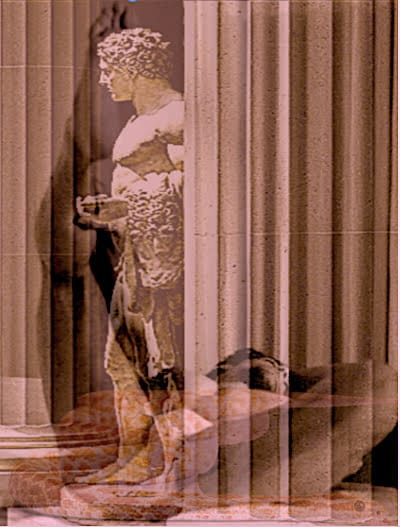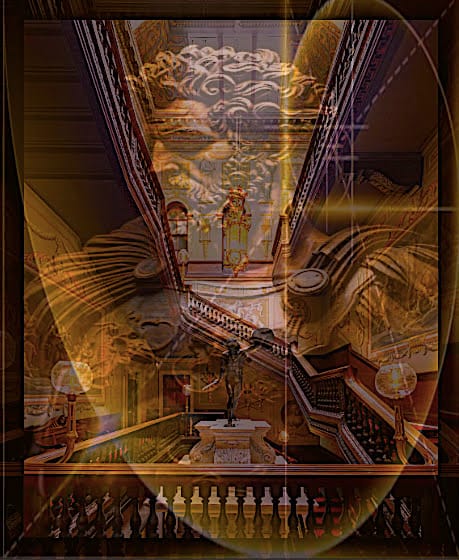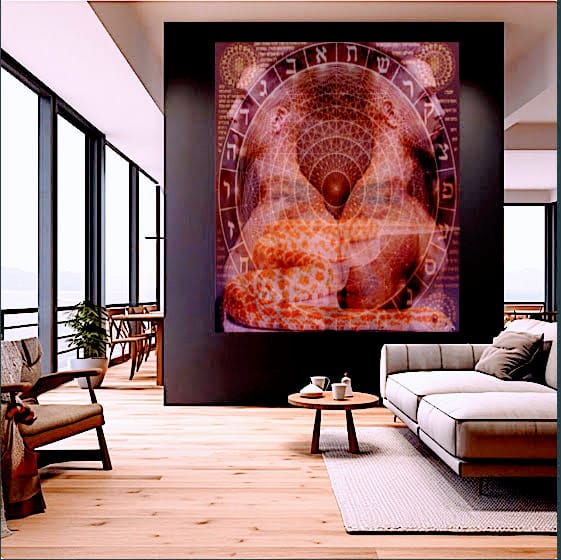AI Ads Are Taking Over TV and Film While the World Sleeps: Theriault Sees the Pre-2030 Reset Unfold

Claude Edwin Theriault: Watching AI-Generated Content Quietly Reshape TV and Film While the World Sleeps
In the evolving digital landscape, Claude Edwin Theriault, a Contemporary French-Canadian artist and cultural observer, is witnessing a significant shift: the slow but undeniable trickle of AI-generated content into mainstream TV ads and movies. While most people are still dazzled or oblivious to this creeping transformation, Theriault sees it as a marker of the larger pre-2030 reset—a silent but seismic restructuring of content ownership, creativity, and global economics.
The Rise of AI in Ads and Movies: The Change People Are Not Noticing
Theriault has long been known for his ability to sense cultural shifts before they hit the mainstream, and the growing prevalence of AI-generated content is no exception. From NBA finals ads created for a fraction of traditional production costs to Wall Street Journal experiments with AI-generated films, artificial intelligence is reshaping how content is produced and consumed.
Yet, the general public is still caught in the initial "Wow, this is not real?" reaction phase. For Theriault, this reaction is outdated. Just as the introduction of high-speed internet eventually became ordinary, AI-generated visuals are on track to become the new normal.
The silent creep of AI content into our screens is more than just a technological advance; it's a cultural reset, a slow pivot toward a future where the line between human-made and machine-generated content is blurred beyond recognition.

Intellectual Property Battles: The Inevitable Lawsuits of the AI Era
Theriault is particularly fascinated by the intellectual property conundrum now unfolding. AI image generators like Midjourney and Stability AI are capable of reproducing beloved trademarked characters—think Darth Vader or Mickey Mouse—without direct human artistic intervention.
This development has triggered high-stakes lawsuits from entertainment giants like Disney and Universal, who are pushing back against what they see as large-scale infringement. Theriault views these legal battles not just as isolated corporate disputes but as the beginning of a global conversation on content ownership in the AI age.
The artist argues that the very foundations of copyright law are being challenged by AI's ability to replicate, remix, and redistribute content at scale. While some AI companies may be forced to pay content creators through potential creator-partner programs (similar to YouTube’s model), others like OpenAI would face near-impossible financial burdens if they had to compensate every source their models trained on.
Google, YouTube, and the Hidden Advantage in the AI Content Game
While the movie industry scrambles to protect its assets, Google appears poised to benefit from this AI revolution. Theriault notes that YouTube, a private platform owned by Google, provides a controlled, licensable dataset for training AI models. Unlike the open internet, YouTube can directly monetize and license the content it hosts.
This places Google in a powerful position, potentially avoiding the massive legal quagmire facing companies that scrape the broader web. Theriault predicts that Google's strategic control over YouTube’s vast video library will make it a dominant force in AI video generation and content licensing in the coming years.
At the same time, the cost of running AI models—especially when factoring in potential legal fees and creator payouts—could slow down other competitors like OpenAI, who are already burning through cash at unsustainable rates.

The Pre-2030 Reset: A Cultural Shift Most Are Sleeping Through
Theriault’s broader perspective connects the rise of AI-generated content to the larger pre-2030 reset, a cultural and economic shift that is gradually rewriting the rules of creativity, ownership, and media consumption.
While people remain asleep to this transition, content is becoming more decentralized, trademarks are being infringed upon more easily, and traditional media companies are losing control of their intellectual property.
Theriault sees this not as a dystopian warning but as an opportunity to embrace new forms of creativity that exist beyond corporate gatekeepers. However, he is also aware that the people who created these now-replicable characters and brands may never see the recognition or compensation they deserve.
Ultimately, the artist suggests that society is on the verge of moving past the "this isn’t real" phase of AI media, heading instead into a time when AI-created advertisements, TV shows, and films will simply become background noise—commonplace, unremarkable, and yet profoundly disruptive.
Five Frequently Asked Questions (FAQs)
1. Why does Claude Edwin Theriault believe most people are asleep to AI-generated content?
Theriault observes that while AI-generated ads and visuals are increasingly present, the general public is still reacting with surprise rather than recognizing this as a permanent shift. He believes people have yet to grasp how deeply AI will transform media and creativity.
2. How are companies like Disney and Universal responding to AI-generated content?
Entertainment giants are suing AI image generators like Midjourney for trademark infringement, particularly when AI tools recreate well-known characters without permission. These lawsuits could set new legal precedents for intellectual property in the AI era.
3. Why is Google positioned to benefit from this AI transformation?
Google’s ownership of YouTube, a private and licensable content platform, gives it a competitive advantage. YouTube’s content can legally be used to train AI models, potentially shielding Google from the widespread legal challenges other AI companies face.
4. What does Theriault mean by the pre-2030 reset?
Theriault refers to the pre-2030 reset as a gradual, global shift in how media, technology, and economics operate. It includes the breakdown of traditional intellectual property boundaries and the rise of decentralized, AI-driven content creation.
5. Will AI-generated advertisements become the new normal?
Yes. According to Theriault and many digital trend analysts, AI-generated advertisements and video content are not a passing trend—they are here to stay and will soon become as ordinary as high-speed internet is today.
